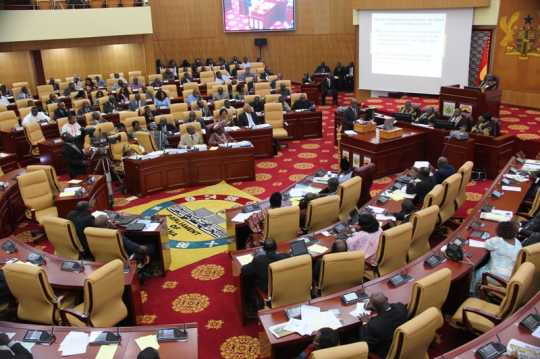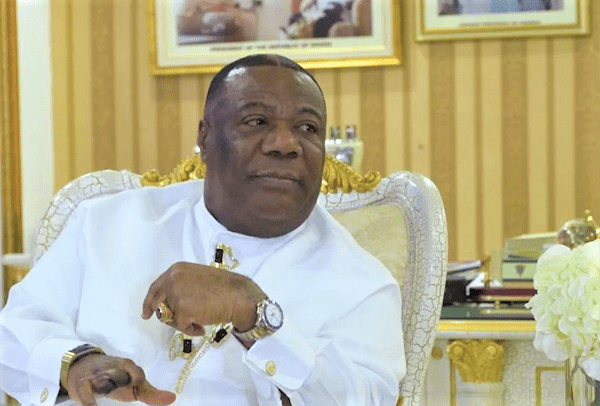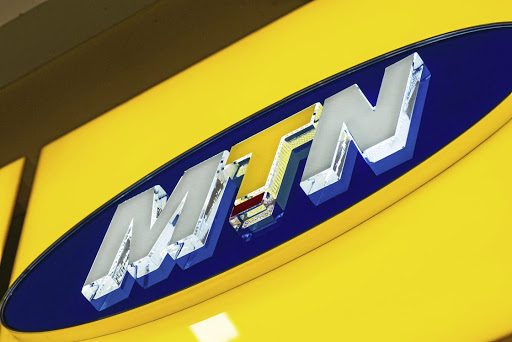Parliament approves $2bn barter deal with China
- Posted on
- Comment
Parliament last Saturday approved a $2-billion Master Project Support Agreement (MPSA) between the government and Sinohydro Corporation Limited of China for the construction of priority infrastructure projects in Ghana.
The MPSA is essentially a barter facility under which Sinohydro will implement various contracts for Ghana and the state will repay with refined bauxite (alumina/ aluminum).
The objective of the agreement is to improve road infrastructure for enhanced intra-urban, regional and national road traffic flow and pursue rural electrification, affordable housing, and fishing landing sites.
It is also to strengthen economic and regional integration and reduce the cost of doing business in the country.
The approval followed the presentation of the report of the Finance Committee of Parliament which, by a majority decision, recommended to the House to approve the agreement.
Prior to the approval of the MPSA, Majority and Minority Members of Parliament (MPs) had disagreed on whether the facility was a loan or a barter arrangement.
While the Minority members, led by their leader, Mr. Haruna Iddrisu, insisted that the facility was a loan, the Majority side, led by its leader, Mr. Osei Kyei-Mensah-Bonsu, strongly defended the view that it was a barter arrangement and not a loan.
Terms and conditions of the MPSA
The terms and conditions of the agreement include an advance payment of 15 percent of the engineering, procurement and construction (EPC) contract price to be pre-financed by Sinohydro and a repayment period of 12 years, with three years grace period.
Repayment items will be receipts from refined bauxite (alumina or aluminum) at an interest rate of between 2.8 percent and less than 3.3 percent per annum on the London Interbank Offered Rate (LIBOR).
The agreement also comes with a commitment fee of one percent per annum and a management fee of 1.2 percent flat.
Committee’s report
Presenting the report of the Finance Committee, its Chairman, Dr. Mark Assibey-Yeboah, said the committee noted that under the MPSA, Sinohydro agreed to arrange for one or more loan facilities for the payment of 85 percent of the construction and project cost of the priority projects of the government.
“The aggregate cost of these priority projects is estimated at $2 billion. Sinohydro has agreed to arrange the project financing for deferred repayment by the government of Ghana,” he said.
He said the committee was informed that the government, in principle, required to provide the remaining 15 percent of the construction and project cost.
However, he said, Sinohydro had agreed to enter into good faith negotiations with the government to reach an agreement on the source and method of financing the 15 percent of the cost.
Barter facility
Dr. Assibey-Yeboah said to enhance and maximize the value to Ghana of its bauxite resources, the committee was informed that the government, through the Ghana Integrated Bauxite and Alumina Development Authority (GIBADA), would establish a bauxite processing plant to process the raw bauxite into alumina before shipping same to service obligations under the MPSA.
“This is expected to help create jobs and enhance the value of the resource to Ghana,” he said.
Majority-Minority disagreements
Concluding the debate for the Minority, Mr Iddrisu said he agreed that the country had a huge infrastructure deficit in roads and other areas but urged the government to be sincere to the public that it was contracting a loan and not a barter, as it sought to portray.
“Let nobody attempt, through deception, that this is not a loan. We need to be sober. If the government wants to borrow for infrastructure, say we are borrowing; we (the Minority members) will support you,” he said.
Majority’s defence
Wrapping up the debate for the Majority side, Mr Kyei-Mensah-Bonsu said once the country needed roads, houses and health facilities, it was crucial for Ghanaians to arrive at a consensus on the way forward.
He said the House was being called upon to approve a commercial agreement but not a loan facility.











 (Selorm) |
(Selorm) |  (Nana Kwesi)
(Nana Kwesi)